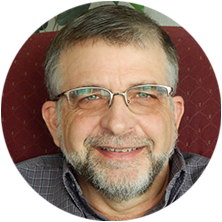The goal of Mennonite Church USA church planting initiatives is to create and nurture missional peace churches — communities of people gathered together by Jesus whose life and witness reflects the gospel of peace and who are engaged in their local settings.
Church Planting Resources
Sent Network is a resourcing curriculum launched to recruit, equip and prepare church planters for their task. Click here to learn more.
Learn more about and apply to the Thrive: Church Planting Grant.
Assessments come in different shapes and sizes. There are some that involve a week of training and psychological testing, one-on-one interviews, group interactions and follow up meetings. Others are short and simple. The purpose, in either case, is to assist the potential church planter in clarifying a sense of calling and competency for the task.
Access assessment tools online.
Conference ministers, church planters and coaches helped develop these brief Shared Theological and Missiological Commitments for Church Planting in Mennonite Church USA which make the claim that God’s primary strategy for impacting our world is by birthing and nurturing Jesus-centered kingdom communities.
Available in English and Spanish.
Mauricio Chenlo, minister for Church Planting, often gets phone calls from individuals and area conferences asking for advice on how to start a church plant. There are no cookie-cutter answers. But, any church plant, no mater how simple or sophisticated the vision, will benefit from a formal written proposal. In the proposal, the leader/group spells out clear goals and action plans. The proposal helps the potential planter communicate vision and get the attention of potential “sponsors”.
Mauricio has also created forms to help you create your proposal. The first is a series of questions in English and Spanish to help you shape your proposal. The second is a form that helps you spell out your “new church plan.” For funding opportunities, contact Mauricio.
“Coaches help people develop their God-given potential so they can grow personally and make a valuable contribution to the Kingdom of God … Coaching is the hands-on process of helping people succeed.” (Steve Ogne)
Coaching is a relational and intentional process that empowers leaders to discover where God is working in their lives and ministries, through discerning opportunities and developing action steps to see God’s agenda become reality.
For more on coaching, check out these links:
In 2009, Mauricio Chenlo conducted a survey called “The Barnabas Report,” which offers information from area conferences involved in planting churches. Check out this partial listing of New Church Plants in Mennonite Church USA (2009-2013).
The landscape of church planting changes constantly, so to access the latest data on new projects, contact your area conference.
here are many effective approaches to planting churches, therefore MC USA does not have one template or protocol that guides church planting. Each conference is called to intentionally plant new churches by calling and resourcing church planters and supporting church plants. Some conferences have church planting systems in place. Other conferences take a more organic approach. Support is available from Mennonite Mission Network as your conference discerns the best approach in your context. Here are three examples of what some conferences are doing:
We offer this simple tool that is useful in assessing if your church or group is ready for multiculturalism. If you are interested in researching more on this theme, visit http://djchuang.com/multi/.
How relevant is theological identity to the formation of new churches? Many non-Anabaptist groups are telling Anabaptists that our witness is quite relevant to the current trends of our culture.
As Anabaptist-Mennonites we are committed to planting missional peace churches. Mennonite agencies provide a rich variety of resources. For example, check out the Missio Dei series produced by Mennonite Mission Network.
APEST is a framework for ministry based on Ephesians 4:1-16. Several current practitioners and theorists of church planting suggest that much of the church’s lack of engagement and imagination related to missional entrepreneurship is due to the lack of apostles, prophets, and evangelists.
Alan Hirsch, one of the leading theorists on Apostolic Imagination and Practice, says that these types of leaders aren’t being formed in the church. Learn more.






